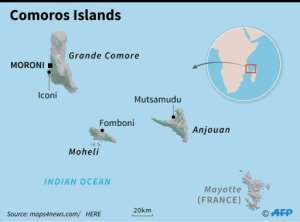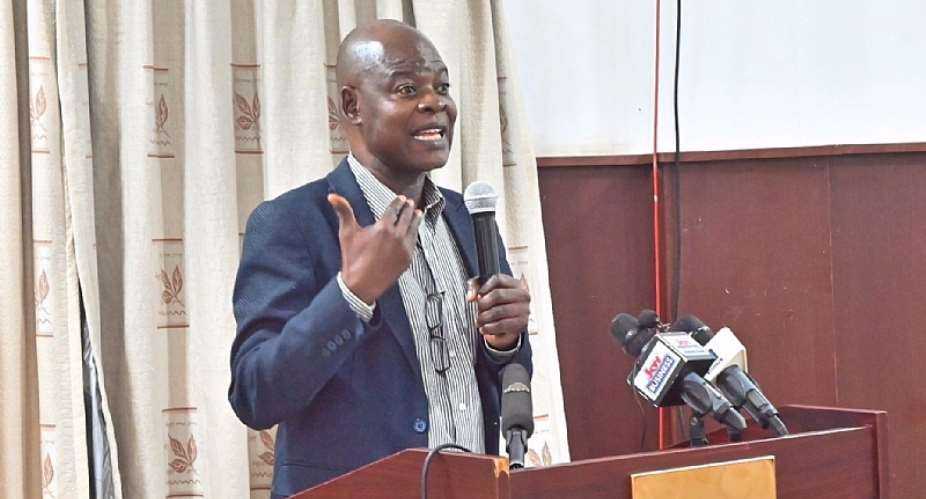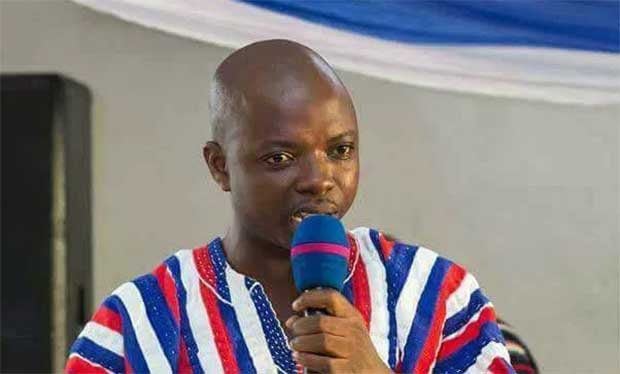
The opposition in Comoros rejected Wednesday the re-election of President Azali Assoumani, saying his victory came at the cost of massive fraud, as the angry mood threatened to spark a new political crisis on the archipelago.
The head of the CENI election board, Djaza Ahmed Mohameda, proclaimed Azali winner on Tuesday, with 60.77 percent of the vote.
Azali, a retired colonel who previously led a coup, ruled the country between 1999 and 2006, and was re-elected in 2016, left his 12 poll rivals trailing.
Opposition Juwa party candidate and lawyer Mahamoudou Ahamada came in second in Sunday's ballot, but won only 14.62 percent of votes cast.
"It's true there were (electoral) hiccups but we count ourselves lucky because they could have been worse," Azali told journalists.
 Police prevented opposition leaders from reaching the National Assembly on Sunday where votes were being counted. By GIANLUIGI GUERCIA (AFP)
Police prevented opposition leaders from reaching the National Assembly on Sunday where votes were being counted. By GIANLUIGI GUERCIA (AFP) "The easy bit is behind us, the difficult bit -- building the nation -- is ahead of us."
Azali's rivals quickly rejected his rallying call.
"For us there wasn't an election on Sunday -- it was a coup d'etat," said Mugni Baraka Said Soilihi, the third-placed candidate.
"We call on the international community not to recognise Azali's re-election," Ahamada said.
Both observers and community groups have questioned the credibility of the vote.
'We are fearful'
Polling stations were ransacked, ballot boxes were stuffed by police and observers were prevented from overseeing the integrity of the vote, according to several witnesses.
"The incidents witnessed meant voters were unable to exercise their civic right in conditions of calm," said a joint statement issued by observers from the African Union, the Comesa east and southern African bloc, and the Eastern Africa Standby Force.
Interior Minister Mohamed "Kiki" Daoudou insisted the election was the most transparent he "had ever seen" in Comoros.
For months the opposition has accused Azali of behaving like a dictator.
Azali staged the poll after Comorans voted in a referendum, boycotted by the opposition, to support the extension of presidential mandates from one five-year term to two.
He could theoretically rule until 2029, critics say, and several opposition figures were arrested around the time of the referendum.
The change upset a fragile balance of power established in 2001 that sought to end separatist crises on Anjouan and Moheli, and halt an endless cycle of coups.
 A plain-clothes policeman was injured on Monday when police in the capital Moroni fired teargas and rubber bullets to disperse opposition supporters. By GIANLUIGI GUERCIA (AFP)
A plain-clothes policeman was injured on Monday when police in the capital Moroni fired teargas and rubber bullets to disperse opposition supporters. By GIANLUIGI GUERCIA (AFP) The Supreme Court also barred some of Azali's major rivals, including former president Ahmed Abdallah Sambi who is accused of corruption, from running.
Following an opposition rally on Monday that was violently dispersed by police, commanders have banned any further protests.
 Comoros Islands. By Kun TIAN (AFP)
Comoros Islands. By Kun TIAN (AFP) "It's not the street which rules the country," Daoudou told AFP.
"I hope there won't be violence in the coming days -- but we are fearful," said former vice president Ahmed Said Djaffar who has lived in exile in Tanzania since falling out with Azali in 2018.
am-lp-pa-gw/ri
Read Full Story













Facebook
Twitter
Pinterest
Instagram
Google+
YouTube
LinkedIn
RSS